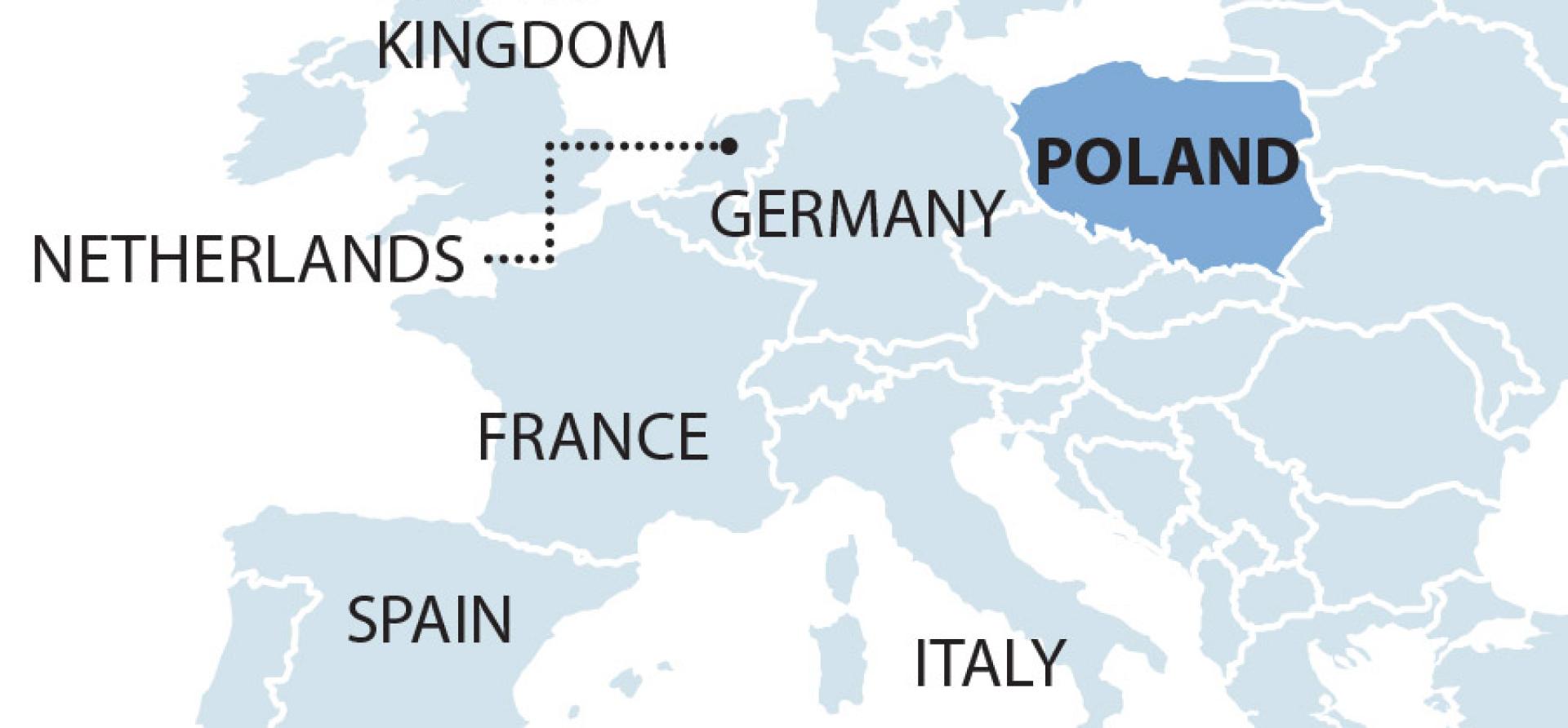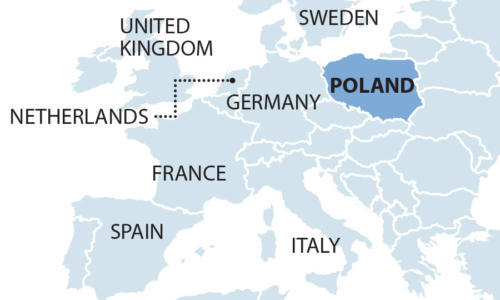IEEFA update: Insurance companies ignore their sustainable investment commitments in Poland

 (LONDON) – Insurance companies with trillions of dollars of assets have continued to invest heavily in coal-reliant Polish companies, ignoring their highly trumpeted sustainable investment commitments.
(LONDON) – Insurance companies with trillions of dollars of assets have continued to invest heavily in coal-reliant Polish companies, ignoring their highly trumpeted sustainable investment commitments.
The issue is coming to a head as these companies pitch for business in Poland’s private pension market, which is due to begin operating under a new set of rules this July. These new rules will require all employers to enroll in new Employee Capital Plans (ECPs), a significant change from the current state-run scheme set up six years ago in the wake of the global financial crisis.
Companies that secure contracts to manage these new plans stand to profit from lucrative management and performance fees attracting bidders from around the world. Already, companies including Aegon and AXA, two large international insurance firms with stakes in the current program, have bid for the new business. Polish firms PKO, Pocztylion-Arka and PZU are also among the candidates vying for these new management contracts.
The problem for the international insurers, in particular, is that these new business opportunities are in direct opposition to their proclaimed sustainability policies, both in terms of directly insuring coal mines and power plants, as well as investing in coal-related businesses. To date, however, short-term profiteering has carried the day as the companies have largely ignored these commitments and continue to invest in Poland’s coal industry.
The insurers have used two arguments to justify their actions, one weak and the other mistaken. First, they have said they prefer to engage with Poland’s coal companies, even while some, such as PGE, have increased their share of coal power generation. Second, they have incorrectly stated that they have no choice but to invest in coal companies under the country’s private pension investment regulations.
COAL POWER PLANTS ARE THE SINGLE BIGGEST CONTRIBUTOR TO CLIMATE CHANGE, WHICH THREATENS INSURANCE COMPANIES IN TWO WAYS. First, as insurers they face increased damage liabilities from weather extremes, which are becoming more intense and frequent as carbon emissions climb. Second, as investors, they are exposed to a global energy sector that is undergoing a rapid low-carbon transition, which will leave coal power plants and mines as worthless assets.
Insurance companies invest both their own money, investing their premiums as buffers against future damage claims, and as asset managers, managing money on behalf of clients, including occupational pension scheme members, as in Poland.
Some international insurance companies have responded to calls to reduce their coal exposure. AXA, Allianz, Generali, and to a very minimal extent, Aviva, for example, began divesting their coal power assets from 2015. However, these commitments appear largely focused on their investments as asset owners, bypassing their asset management businesses.
Their arguments for investing differently as asset managers from asset owners appear to rely on some faulty assumptions, for example, regarding Poland’s local investment regulations which do not, in fact, require them to invest in coal.
NGOs are pressuring insurance companies to get out of the coal business and support clean energy
Unfriend Coal, a campaign led by several non-governmental organizations (NGOs), is pressuring insurance companies to get out of the coal business and support the transition to clean energy. Last year, the group published a report which found that asset managers currently manage funds on behalf of pension scheme members worth more than 10% of the capitalisation of the Polish stock exchange.
The report focused on six international European insurers – Nationale Nederlanden (Netherlands-based), AXA (France), Generali (Italy), Aviva (Britain), Allianz (Germany), and Aegon (Netherlands) – as well as U.S.-based Metlife and Poland’s PZU. Notwithstanding the pressure to reduce their coal exposure, Unfriend Coal found that the insurers managed large, combined stakes in Polish coal utilities, via their Polish asset managers. As of December 31, 2018, they managed aggregate investments equivalent to 16.4% of ZE PAK, 10.7% of ENEA, 9.8% of Tauron, 8.6% of PGE and 7% of Energa.
It is interesting to highlight the case of PGE, Poland’s biggest and most carbon-intensive energy company. The pension fund managers’ reports show that PGE accounted for a significant percentage of their total holdings as of December 31, at 2.2% for PZU and Metlife, 2% for NN and AXA, 1.9% for Aegon, 1.6% for Generali, 1.2% for Aviva, and 0.9% for Allianz.
ACROSS EUROPE, MOST UTILITIES HAVE RUSHED FOR THE COAL EXIT DOOR, driven by increasingly favourable economics for renewables, the impact of smart grid infrastructure, and the effect of new rules to combat climate change and air pollution. But not in Poland, where PGE has actively invested in coal, via a buying spree, power plant upgrades and two new-build coal projects. As a result, the company’s generation from renewable sources including hydro and biomass actually fell last year as a share of the total, to 3% from 4%, compared with 91% coal generation.
Responding to the Unfriend Coal report, the insurance companies made three main arguments justifying their continuing investments in Polish coal equities.
First, some said they preferred not to divest, but rather to engage investee companies and, in this fashion, to try and influence their corporate strategy. For example, Nationale Nederlanden said: “We prefer not to exclude sectors on the basis of their environmental footprint. Instead, we prefer to engage with investee companies to encourage them to reduce their footprint.”
Second, some insurers said they were not responsible for the investment strategy of their local asset managers, as they were investing on behalf of pension scheme members. For example, NN Group said it could not influence its own activities in Poland: “NN OFE is a separate legal entity operating under Polish law. Because of this legal and financial structure, NN Group cannot influence nor comment on their investment strategy.”
Third, some said that Polish regulations required them to invest in Polish stock markets, which are dominated by coal companies, thus tying their hands. For example, Aviva said: “The investment guidelines focus on domestic equity where the energy industry is the second largest after the banking sector.” And AXA said: “These investment vehicles are strictly regulated by local regulation: at least 70% of these assets must be invested in Poland, mostly in the Warsaw Stock Exchange (WSE) which itself is highly exposed to the coal industry.”
Only the Netherlands-based insurer, Aegon, said that it was actively resisting any local restrictions on its pension fund investments in Poland, stating: “These investments in Poland are in violation of our policy to stop investing in coal. We have been working hard with other investors to reverse these investments for some time.” However, even Aegon has taken no visible action to date.
AN ALTERNATIVE APPROACH
The first two of these responses – on engagement and asset management strategy – seem to be more about how to reduce coal sector exposure rather than an indication of any concrete barrier to such a reduction.
We can therefore focus on the third argument, on investment restrictions.
The insurance companies stated that there was a 30% cap on overseas-denominated assets, and that most Polish assets had to be invested in the stock market, which is dominated by coal stocks.
Polish-dominated assets do not have to be comprised mostly of stocks
Indeed, open pension funds (OPFs) are required to invest a minimum of 70% of total assets in Polish-denominated assets, and this restriction will continue under the new ECP scheme from July. However, a brief review of readily available research indicates that Polish-denominated assets do not have to be comprised mostly of stocks. Since the 2013 shakeup of the Polish pensions industry, OPFs have been allowed to invest in Polish and overseas equity markets, municipal, mortgage and corporate bonds, and cash, among other assets. OPFs are only required to allocate a minimum of 15% of total assets to local and overseas equities, according to the law firm Allen & Overy. Further, according to the World Bank, even this limited restriction falls away under the new law, which only suggests a benchmark cap on equities investments, and no floor.
Regardless, if insurance companies feel compelled to invest in Polish equity markets, for example because of liquidity or other risk-return characteristics, THERE ARE OPTIONS TO AVOID OR REDUCE THEIR EXPOSURE TO COAL.
There is ample precedent for off-the-shelf index providers such as MSCI, Morningstar, S&P and various investment banks to build indices in specific markets that reduce exposure to high-carbon companies, while minimising impacts on returns and other asset characteristics.
Alternatively, the insurance companies themselves – as highly experienced investors – could design their own bespoke low-carbon indices for the Polish equities market. If the Polish equity market is indeed highly tilted toward coal, then indices could screen out the most carbon-intensive coal utilities, such as PGE, if not all of them.
Many international insurers now publicly accept that they are dangerously exposed to climate change, and the transition to a low-carbon industry, both as investors and underwriters. AS HUGE, WORLD-LEADING INVESTORS, THEY MUST ALSO TAKE ACTION. To date, their activities in Poland have not meshed with their sustainability rhetoric, the country’s pending pension scheme reforms are an opportunity to change direction.
Gerard Wynn ([email protected]) is an IEEFA energy finance consultant.
RELATED ITEMS:
IEEFA report: Every two weeks a bank, insurer or lender announces new coal restrictions
IEEFA Europe: PGE’s pro-coal strategy in Poland under fire
IEEFA Europe: Poland’s PGE would do well to accelerate plans to diversify away from coal














